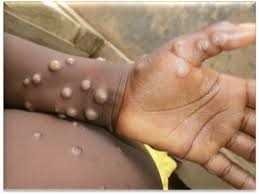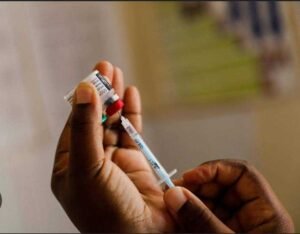
Health authorities update emergency response for upsurge in monkey pox cases

Ghana is updating its emergency response plans following an upsurge in monkey pox cases within the sub-region.
The World Health Organisation (WHO) will convene experts amid the rising monkey pox cases in Africa on Wednesday August 14. Burundi and Rwanda are the latest to record cases while Kenya and the Central African Republic are also having an increase in cases.
The Africa Centre for Disease Control and Prevention (Africa CDC) reported a significant rise in M-pox cases, with the virus now detected in 10 African countries this year, including the DRC, which accounts for over 96% of all reported cases and deaths.
The agency noted a 160% increase in cases compared to the same period last year, alongside a 19% rise in fatalities. Nearly 70% of cases and 85% of deaths in the DRC have occurred in children under the age of 15.
The Independent experts selected from countries are to assess whether the escalating spread of the M-pox virus in Africa warrants a global health emergency declaration.
The Director of Public Health at the Ghana Health Service, Dr Franklin Asiedu Bekoe, said clinicians are already being re-trained for any early detection of a case.

“Since 2022 we started having cases, there have been an increase in cases especially from the beginning of the year. Mostly in DR Congo, Rwanda, Kenya and the rest, even Nigeria. So the Africa Centre for Disease Control CDC has called for a meeting to discuss the situation in member states and how to avoid a bigger outbreak.
“There is even discussions ongoing for it to be declared a public health emergency with international concern. The idea is for member states to be reactivate in their emergency plans. The Africa CDC has also earmarked about 10 million dollars to support the states affected,” he said.
According to Dr Bekoe, Ghana recorded 120 monkey pox cases in 2022 with 4 deaths.
In 2023, the country recorded 8 cases but yet to record cases though classified amount the 19 out risk countries of the disease.
“So, we have heightened surveillance, and the clinicians are also being re-trained. Early detection is what we are working with and thankfully, we have the reference lab that has also improved our case confirmation from relying on Noguchi alone previously. Sensitization is also going on,” he outlined.
Meanwhile, the Africa Centre for Disease Control and Prevention (Africa CDC) has declared as a “public health emergency of continental security.”







